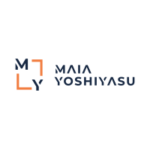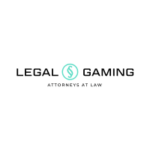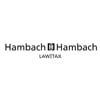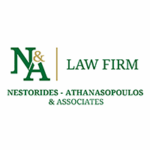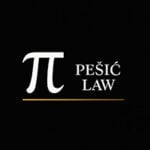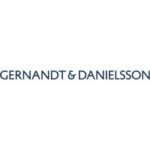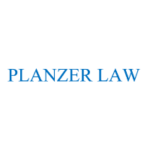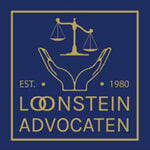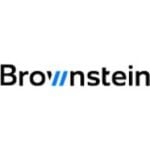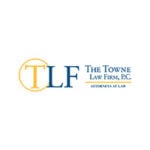-
What is the legal definition of gambling?
According to the Bulgarian Gambling Act (GA), “gambling” is any game of chance (GoC) in which there is a bet and the bet can be won or lost. Hence, the three main elements that define a game as gambling are the accepted bet, the reandomnes of its determination as win or loss.
A “bet” is any monetary payment, made directly or in another form, to participate in a gambling game with the aim of obtaining a profit.
The element of “chance”, although not expressly defined, suggests randomness of the outcome used to determine the bet in online GoC, regardless of whether is has been generated via RNG, or is expressed in outcome of a sport competition, or depends on the occurrence of events or facts came out true. The involvement of an RNG to determine such outcome is excluded for online betting on sports competitions, horse and dog races, betting on random events and guessing of facts.
As an exception, games of an entertaining or competitive nature shall not be considered gambling, where:
(i) the participants are required to demonstrate skill, knowledge and abilities;
(ii) the games are not based primarily on chance; and
(iii) where the participation fees form prize fund, it is distributed in full among the participants. However, this exception shall not apply to online GoC.
Another exception is given for the operation of amusement machines used for recreation and entertainment, demonstration of dexterity and skills, and those with a cognitive purpose, which are awarding material prizes of up to ~ EUR 10.
-
What legislation applies to gambling? Please provide a summary of the legal/regulatory framework.
The GA sets forth the basic legislative framework for carrying out gambling activities. Several ordinances of the Council of Ministers and other by-laws of the Executive Director of the National Revenue Agency (ED NRA) have been issued on the grounds provided for in the GA, regulating various aspects of its implementation, namely:
(i) gaming conditions and rules for the different licensable types of GoC;
(ii) requirements for opening and running land-based gambling premises, i.e., gaming halls, casinos, betting points, etc.;
(iii) rules for the organization of work and financial control when organizing GoC;
(iv) technical requirements for the systems for controlling GoC and gaming equipment, as well as general technical and functional requirements for gaming software and communication equipment for online gambling;
(v) the necessary documents for issuing a B2C or B2B license;
(vi) the requirements for onboarding a player and approving reporting systems, setting forth the functional and technical requirements thereto.
-
Which body/ies regulate gambling?
The state supervision in the field of gambling and gambling-related activities is carried out by the ED NRA:
(i) sole licensing authority in the field of gambling;
(ii) approves: the game rules of the B2Cs, their rules for storing information for reporting and control purposes; the reporting systems of the B2Cs and their integration to the NRA`s server; the mandatory sample filing forms and documents;
(iii) orders the suspension of the organization of gambling games on illegal websites;
(iv) issues guidelines to the industry and mandatory instructions to the agency services for the uniform application of the gambling related legislation;
(v) provides the information necessary for the implementation of gambling activities, etc.
In its activities, ED NRA is assisted by the administration of the NRA, which carries out monitoring and control over the gambling related activities, conducts licensing and administrative penalty proceedings.
-
Are licences available? If so: a) What is the duration of a licence? b) What types of licences are available? c) Are there different types of licences for B2C and B2B operators? d) Do software suppliers need to be licensed?
What is the duration of a licence?
The term of the licenses is 5 or 10 years at the request of the applicant. It could be extended for the same term under a fast track procedure upon a written request filed with the NRA between 6 and 2 months before the expiry of the current license, should the license holder be still compliant.
What types of licences are available?
From a B2C licensing perspective, the lottery games, except for raffles and bingo, are the exclusive right of the state, awarded ex lege to a public company called DP BULGARIAN SPORTS TOTALIZATOR.
Should certain statutory terms and conditions be met, B2C licenses for all remaining types of GoC both in online and offline mode are widely available, namely: sports and horse and dog races, games with bets on random events and guessing of facts, games with slot machines and games in a gambling casino. The way, technical means and electronic communication means or services through which a gambling game is organized and offered do not change the type of game.
Online betting is a way of organizing a gambling game in which players bet directly via the Internet or other electronic means of communication, where the player and the organizer communicate electronically. Hence, the licensing of online betting follows a relatively tech-neutral model, except for the GoC organized via electronic communication means, which are largely defined as a separate type of gambling license/activity, where the bet is placed through charge for the electronic communications service. The latter type of license has never been pursued in practice so far, moreover, it is subject to a heavier gaming tax of 15% on the bet (expressed in increase to the price of the electronic communication service), wherefore, hardly viable as a competitive alternative to an online GoC taxed on the GGR.
Are there different types of licences for B2C and B2B operators?
Apart from the said B2C authorizations, two different types of licenses for B2B activities available are also available, namely, for production and for import of gaming equipment. While the production involves the development and distribution of proprietary gaming products, the import refers to the case where third-party gaming products are being distributed. Gaming equipment is defined as gaming machines with one or more gaming seats, gaming tables in a gaming casino and gaming facilities for the numerical lottery games toto, lotto, bingo and keno; as well as, the virtual simulations of physical gaming equipment, realized by a combination of hardware and software elements, which, under the control of a personal computer, obtain the functionality of the physical gaming equipment, process and visualize the full information about the game and its results.
Do software suppliers need to be licensed?
The official position of the regulator is that the production and/or distribution of type approved gaming software are also subject to licensing. Yet, in practice, the use of gaming software by unlicensed manufacturers is tolerated when the rights to its use are acquired through a licensed distributor or directly by a B2C for self-supply.
The practice of the regulator has also assumes issuance of a license for the production of gaming equipment when a casino studio is organized on the territory of Bulgaria. Likewise, a license for the import and distribution of gaming software would be required for gaming software aggregators operating from the territory of Bulgaria.
-
Are any types of gambling products prohibited?
There is no express prohibition of a particular gambling product, yet only the expressly stipulated types of GoC are allowed for organizing/licensing in Bulgaria, namely: lottery games, sports and horse and dog races, games with bets on random events and guessing of facts, games with slot machines and games in a gambling casino. Instant lotteries and raffles are restricted online.
Offering and promotion of GoC to minors (under 18 years of age) and vulnerable individuals is strictly forbidden.
-
What is the headline application procedure? Please include any eligibility and other application requirements, including approximate application costs and any need to establish a local presence.
To qualify for a gambling license, it is required that the applicant:
(i) is an EU/EEA/Switzerland based company with its shareholders established or residing in the same group of jurisdictions;
(ii) meets certain financial requirements:
(a) a minimum registered capital of ~ EUR 0.75 million for casino and approximately half that number for slots;
(b) investment made in EU/EEA/Switzerland in gambling related assets, exceeding certain threshold (approx.): EUR 1.3 million for betting on sports or random events, EUR 0.5 million for casino, EUR 0.13 million for slots and EUR 0.5 million for any type of online games, EUR 0.3 million for a B2B producer license; financial lease may also qualify where a significant part of the asset`s value has been effectively paid and final acquisition of the asset has been undertaken contractually; and
(c) available cash balance or established bank guarantee for organizing of the licensed games of chance (approximately): EUR 0.5 million for sports and randoms events, EUR 0.1 million for slots, EUR 0.3 million for casino and any online type of game, EUR 0.1 for B2B importer license. The financial thresholds for a 10-year license are double the figures for a 5-year one.
Where the applicant for an online license has proven compliance with these financial requirements once for the first license, it is not necessary to prove compliance with these thresholds again when applying for a subsequent license of the same type.
(iii) opens a special dedicated account in a locally operational bank for deposits and payouts in the games.
(iv) for online license, must have a central computer system, deployed on territory of EU/EEA/Switzerland, with functionalities for registration and identification of players, storage, and reporting of game transactions related information to the NRA`s server, however, at least a functional local control server, physically connected to the NRA`s control server, shall be situated locally to host a real time replication mirror version of the players` and transactions information, hereinabove, generated in the central computer system; such server with functionalities for push reporting and database interrogation access.
(v) undergoes successfully a regulatory KYC involves standard checks for clean tax and criminal record, source of wealth, insolvency, offshore connections, international sanctions, etc.
-
Do individuals within the business need to be personally licensed or authorised? If so, please provide headline requirements.
An individual cannot qualify for a gambling related license. There is also no obligation for individuals within the business to be personally licensed.
However, a regulatory KYC is applied to the company representatives and the direct shareholders in possession or control of over 25% of the company capital, which is considered a beneficial ownership. The KYC involves standard checks for clean tax and criminal record, source of wealth, insolvency, offshore connections, international sanctions, etc., and applies also in cases where change of control ends up with a new beneficial owner. Furthermore, throughout the B2C licensing process the applicant needs to submit to the regulator a list and contact details of the key functions’ responsible employees, largely derivable, for not being expressly set forth, as CTO, CFO, CMO, and the dedicated anti-money laundry officer is a must.
The operators which are not established locally must always have an official representative, notified to the regulator.
-
Is advertising of gambling permitted and, if permitted, how is it regulated?
There is no general ban on advertising of gambling, yet some restrictions apply. In their complexity the restrictions effect in limitation of the the direct advertising of gambling products. Generally, the sole promotion of a B2C brand or a domain name of a gambling website is not considered advertising, since it has been officially assumed as a form of mere directing of players to legitimate forms of gambling, rather than promotion, so no restrictions apply thereto. The harshest restriction on advertising applies to TV, media websites, print media and in public places, where no advertising is allowed whatsoever, save for the express exceptions set forth in the GA. Subject to these exceptions, it is allowed to place indirect advertising impressions comprising gambling brands or websites` domain names on billboards, betting points, gaming halls, and casinos, as well as on sport facilities. So, the indirect advertising is largely used to promote B2C brands, game types (names), yet, refraining from direct agitation to participation, promotion of gambling products and their terms, and/or features, prizes, jackpots, bonuses, etc. It is not required to blur B2C brands on players‘ outfit and indirect advertising impressions placed on sports facilities when aired on TV or other media.
-
Are marketing affiliates permitted? If so, are they licensed or regulated?
No gambling license is generally required for ancillary (gambling related) activities, such as affiliate activities, marketing and advertising, supply of infrastructure and services, payment services, etc., as far as provided to licensed B2Cs.
-
What are the penalties for offering, facilitating or marketing unlawful gambling, and can the gambler be penalised for participating in unlawful gambling?
Organizing or facilitating of unlawful gambling is subject to administrative penalties of up to EUR 2,5 million. Such conduct may also trigger criminal prosecution against an individual or the representatives of a company, since the legal entities themselves cannot bear criminal responsibility. The most typical conduct to be prosecuted would be organizing of GoC without the proper license. The penalty may reach 6 years of imprisonment and EUR 0.05 million in sanctions on a standalone basis. If it is a repeated offence, it could reach 8 years of imprisonment and EUR 0.1 million in sanctions, and if it is related to fixing the results in sport competitions, the imprisonment could reach even up to 10 years.
Individuals are liable for participating in illegal gambling, subject to 1 year of imprisonment and administrative penalty up to EUR 1,000.
Other types of conduct are subject to administrative penalties, such as: facilitation of unlicensed gambling activities, including particularly by payment institutions, placing of gaming equipment and software on the market without being registered, providing electronic services to blacklisted B2Cs, accepting bets from minors, etc.
-
Briefly detail key requirements for licensees.
Licensees are bound by numerous requirements, such as:
(i) financial – to pay fees (one off licensing fee and monthly recurring fee of 20% from the GGR, except for land based casinos and gaming halls which are paying fixed quarterly fee per piece of equipment/place for multiplayer slot machines), annual responsible gaming (RG) fees, maintain investment for the license duration, maintain gaming guarantee, pay out winnings timely;
(ii) legal – to maintain compliant gaming rules (approved by the NRA), to support technically and functionally compliant systems for organizing of the activity, to use only type approved and registered gaming equipment and software, to pay out cashless winnings which exceed EUR 2,500, to accept bets and pay out winnings only in BGN or EUR (only EUR is allowed as of 1 January 2026), except for casinos which could search for regulatory approval to accept other currencies;
(iii) regulatory – to onboard players upon IP geo-location on the territory of Bulgaria, to identify the customers`, to reject onboarding of underaged and pending addict registrants, to run customer checks under the AML regulations, against blacklists and PEP lists, to report each customer to be onboarded, and the gaming history in real time thereafter, to report security breaches, and to declare players winnings (both paid out to a gaming account and withdrawn) exceeding EUR 2,500 on a yearly basis, to adhere to the personal data protection framework, to implement responsible gambling measures.
-
Briefly detail key anti-money laundering requirements.
The AML compliance would require that a BTCs maintains compliant policies and trained staff, conduct regular AML checks of its clients, including PEP and blacklist checks, report suspicious transactions, checks against sanctions lists, etc. The national regulator is the State Agency for National Security; however, NRA is expressly awarded sector gambling specific monitoring and control functions. Customer identification of players must be carried out for account opening, whilst enhanced AML due diligence check must be conducted by no later than the request of the first withdrawal, or when reaching a cumulative deposit, amounting to €2,000. A B2C should not allow a player holding more than one gaming account or to transfer funds to other player accounts.
B2B licence holders are not classified as subject persons and thus do not fall under AML laws and regulations.
-
Briefly detail key responsible gambling (or safer gambling) requirements.
The key responsible gambling (or safer gambling) requirements mandate on the B2Cs to undertake all necessary precautions not to target or allow participation in GoC of minors and gambling addicts. The NRA is supporting a self-exclusion register for gambling addicts. Everyone may apply for simple form registration for 12 months minimum chill off period, whereafter, the B2Cs are obliged to restrict the access to gambling products. The organizers are obliged to integrate their systems to the register for automated checks. The restrictions for onboarding of mentally disabled and socially supported individuals are not effectively enforced.
A B2C is not allowed to lend credits to the players in whatsoever form.
It is expected, although not expressly mandated, that the B2Cs implement self-exclusion and chill off RG measures of their choice, and this is widely the case. Responsible gaming standards are pending approval and adoption.
The operators are obliged to introduce a reliable complaint handling system and report to the regulator.
Processing of bets and winnings is allowed in BGN, limited until 31 December 2025 and/or in EUR. No other currency is allowed, except for casinos, upon express prior licensing by the NRA.
-
Briefly detail shareholder reporting and approval threshold(s).
All qualified direct shareholders (such holding or controlling over 25% of the company capital) are subject to regulatory KYC at licensing. Subsequently, each new qualified shareholder is subject to post acquisition approval, filed for no later than 14 days after occurrence.
-
Briefly detail the regulator’s enforcement powers, including sanctions.
The NRA monitors and controls the gambling activities. In case of major infringements, it may rule temporary or final license revocation and sanctions. Revocation is mostly possible upon failure to declare and pay fees, failure to comply with AML, safety and responsible gaming requirements, failure to maintain compliance with the key licensing conditions, failure to pay out winnings, breach of the approved gaming rules, failure to assist inspections, material breaches of the advertising restrictions, etc. The operator may prevent revocation by remedy of the breach and its consequences within one month`s term, whereafter revocation is not enforced. Should remedy be impossible the operator may voluntarily file for license termination to avoid revocation enforcement.
The NRA may impose fines for breach of the GA, ordinances, and by-laws thereunder. A wide range of penalties apply, yet the highest sanctions up to EUR 2.5 million apply for unlicensed activity, and for facilitation of such activity up to EUR 0.1 million, followed by breach of the advertising restrictions penalized up to EUR 25,000. Few of the reminder sanctions exceed EUR 5,000.
-
What is the tax rate?
As to the chargeable gaming related fees, the organizers of GoC are widely taxed with recurring monthly gaming fee of 20% from the GGR (bets minus winnings paid out to the gaming account), except for the land-based casino and gaming halls which are paying fixed fees per equipment/place.
The following other licensing fees apply to:
(i) B2Cs: one off filing fee – b/n EUR 20,000 and EUR 35,000, depending on the type of license, one off issuing fee of approx. EUR 0.2 million; annual RG fee of approx. EUR 30,000;
(ii) B2Bs: Around EUR 20,000 one off licensing related fees; no recurring and responsible gaming fees.
A yearly corporate tax of 10% applies on the profit, recognizing the gaming fees declared and paid as deductible cost for the activity. The organization of GoC is a VAT exempt activity, yet no VAT credit is recognized to the B2Cs. The B2B activities are on the other hand VAT-able and susceptible to VAT credit. Reverse VAT charging applies for VAT-able goods and services purchased from foreign suppliers. Flat 20 % VAT applies in Bulgaria.
A 10% withholding tax applies, unless differentiation or exemption is granted by law or DTAA, e.g., the gaming equipment and licensed gaming software, advertising and consultancy services would normally be subject to such taxation.
-
Are there any proposals for changing gambling laws and regulations in the next 12-24 months? If so, please provide an overview of the proposed changes and likely timing.
There are no pending (primary) legislative initiatives in the field of gambling.
-
What key regulatory developments are proposed or on the horizon in the next 12-24 months?
Apart from the responsible gambling draft ordinance setting forth the compulsory gaming measures and thresholds, there is no major intended legislative change communicated officially by the regulator or the policy maker as at the beginning of October 2025. Sometimes amendment proposals are passe as part of the tax and budgetary procedures.
Some responsible gaming regulations are expecting approval and adoption by the Council of Ministers, yet with unclear timing, mandating obligations on the online B2Cs to implement cool-off and prevention of excessive gambling related measures, such as compulsory log out and spending limitation thresholds.
-
Do you foresee any imminent risks to the growth of the gambling market in your jurisdiction?
We do not foresee any imminent risks to the growth of the markets in Bulgaria. The gaming sector ensures steady and growing fiscal revenue, and should be seen as a major tool against the illegal gambling, whose share seems to be decreasing due to the applied policy for controlled expansion of the legitimate forms of gaming.
-
If a gambling start-up was looking for a jurisdiction in which to commence its activities, why would it choose yours?
The reasons to choose Bulgaria for economic activity is the relatively stable and predicable tax policy, even in the gambling sector. Apart from the establishment of special right of the state over the lotteries 5 years ago, there have been no further show stopper legislative and regulatory enforcement initiatives. The local authorities seem to follow the EU regulatory tendencies in a proportionate manner. Another key factor is the forthcoming accession of EUR as of 1Januarry 2026, which is expected to create even better economic stability and prosperity of the economy in mid-term perspective. Licensing would take about 6-months.
Bulgaria: Gambling Law
This country-specific Q&A provides an overview of Gambling laws and regulations applicable in Bulgaria.
-
What is the legal definition of gambling?
-
What legislation applies to gambling? Please provide a summary of the legal/regulatory framework.
-
Which body/ies regulate gambling?
-
Are licences available? If so: a) What is the duration of a licence? b) What types of licences are available? c) Are there different types of licences for B2C and B2B operators? d) Do software suppliers need to be licensed?
-
Are any types of gambling products prohibited?
-
What is the headline application procedure? Please include any eligibility and other application requirements, including approximate application costs and any need to establish a local presence.
-
Do individuals within the business need to be personally licensed or authorised? If so, please provide headline requirements.
-
Is advertising of gambling permitted and, if permitted, how is it regulated?
-
Are marketing affiliates permitted? If so, are they licensed or regulated?
-
What are the penalties for offering, facilitating or marketing unlawful gambling, and can the gambler be penalised for participating in unlawful gambling?
-
Briefly detail key requirements for licensees.
-
Briefly detail key anti-money laundering requirements.
-
Briefly detail key responsible gambling (or safer gambling) requirements.
-
Briefly detail shareholder reporting and approval threshold(s).
-
Briefly detail the regulator’s enforcement powers, including sanctions.
-
What is the tax rate?
-
Are there any proposals for changing gambling laws and regulations in the next 12-24 months? If so, please provide an overview of the proposed changes and likely timing.
-
What key regulatory developments are proposed or on the horizon in the next 12-24 months?
-
Do you foresee any imminent risks to the growth of the gambling market in your jurisdiction?
-
If a gambling start-up was looking for a jurisdiction in which to commence its activities, why would it choose yours?



